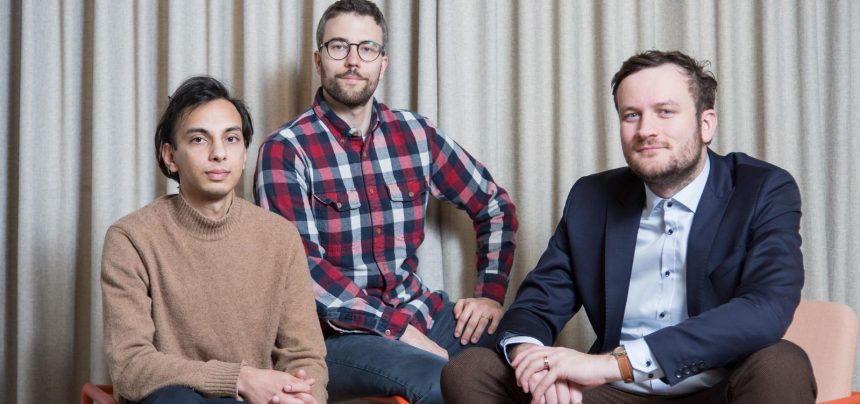The nascent field of quantum computing holds immense promise, poised to revolutionize industries and tackle challenges beyond the capabilities of classical computers. Experts predict a potential market worth trillions of dollars within the next decade. However, the path to realizing this potential is fraught with complexities, as multiple competing technologies and organizations vie for supremacy in this burgeoning field. The central challenge lies in developing practical and commercially viable quantum computers, a feat that requires overcoming significant technological hurdles.
ZuriQ, a Swiss start-up, has emerged as a notable contender in this quantum race. While acknowledging the inherent risks, CEO Pavel Hrmo exudes confidence in his company’s approach, emphasizing their unique position to succeed. ZuriQ focuses on trapped ion technology, where charged atomic particles, held in place by electromagnetic fields, serve as qubits – the fundamental building blocks of quantum information. Trapped ions have demonstrated considerable potential, but scaling the number of qubits has proven a major obstacle due to the limitations imposed by the laws of physics. This scalability challenge directly impacts the computational power achievable with these systems.
ZuriQ’s innovation lies in its novel approach to trapping ions, employing a two-dimensional grid structure instead of the conventional one-dimensional chains. This breakthrough has the potential to overcome the scalability limitations that have plagued trapped ion architectures, paving the way for more powerful quantum computers. The team rigorously validated their theoretical work through extensive calculations and experimental verification, culminating in a publication in the prestigious journal Nature. They have since successfully built a working prototype in the lab and are now focused on developing a larger-scale version.
ZuriQ’s announcement comes at a pivotal moment for the quantum computing industry. Recent skepticism from industry leaders, such as Nvidia CEO Jensen Huang, regarding the timeline for practical quantum computers has dampened investor enthusiasm and impacted the valuations of several quantum computing companies. Huang’s prediction of a 20-year horizon for widespread availability of practical quantum machines cast a shadow over the sector. However, Hrmo remains optimistic, believing that ZuriQ’s advancements could significantly accelerate the timeline for commercially viable quantum computing. He envisions ZuriQ playing a pivotal role in the quantum computing landscape, akin to Nvidia’s influence in classical computing.
Hrmo’s ambition is to build ZuriQ into a company that provides essential hardware for the quantum computing market. He believes that ZuriQ’s technology is uniquely positioned to address the needs of various industry players and that the tipping point for widespread adoption will inevitably arrive. ZuriQ’s recent successful seed funding round of $4.2 million, led by Founderful with participation from other prominent venture capital firms, underscores the confidence investors have in the company’s potential. This funding will support the development of a working prototype by 2026, a crucial milestone for demonstrating the viability of ZuriQ’s technology.
The successful development of a working prototype will be a significant step towards validating ZuriQ’s approach and attracting further investment. The company’s innovative two-dimensional ion trapping technology has the potential to overcome the scalability challenges that have hindered the progress of trapped ion quantum computing. If ZuriQ can successfully demonstrate the scalability and performance of its technology, it could significantly accelerate the timeline for practical quantum computing and position the company as a leader in this transformative field. The race to build practical quantum computers is still in its early stages, but ZuriQ’s innovative approach and promising early progress position it as a strong contender in this exciting technological frontier. The company’s focus on developing robust and scalable hardware could be crucial in unlocking the vast potential of quantum computing and shaping the future of this revolutionary technology.



